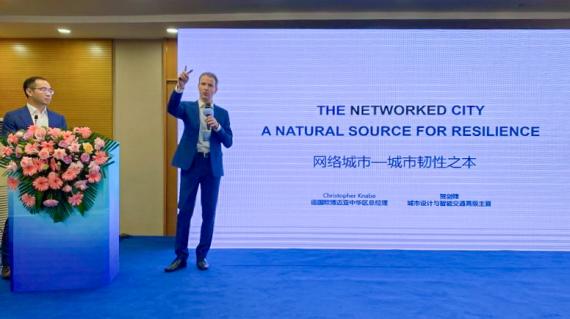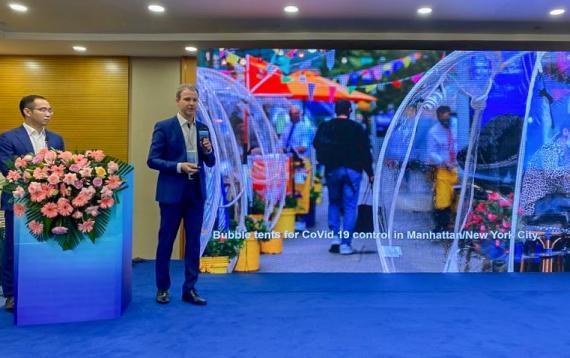We delivered a speech at the 3rd International Forum on Resilient City
On October 25, the "2020 Resilient Cities · The Third International Forum on Sustainable Development Sustainable Development of Mountain and Water City" was held in Chongqing. Academicians of the Chinese Academy of Engineering and dozens of industry experts, including OBERMEYER, actively contributed their opinions and suggestions on building a resilient city in Chongqing.
Unprecedented changes in a century have taken place. International environmental uncertainty has risen sharply, and the tide of globalization has entered a period of profound adjustment. The traditional factor cost advantage of China's economy is no longer sustainable, and the future economic development is in urgent need of stronger endogenous power.
Cities, as the carrier to realize the new strategy, have frequent and diversified natural disasters, frequent periodic social crises. The sensitivity and vulnerability of cities are further aggravated by globalization. With the global spread of COVID-19, cities are facing increasingly acute disasters and chronic stress. Cities urgently need to find effective means and measures of urban governance to improve urban "resilience" and reduce urban risks.
Under the theme of "Resilient Cities", this forum gathered international high-end intelligence, including Mr. Guoping Wang (the Chairman of Hangzhou International Urbanology Research Council), Mr. Wenzhong Deng and Mr. Yukio Tamura (foreign academicians of the Chinese Academy of Engineering), and Mr. Jianmin Meng and Mr. Xuhong Zhou (academicians of the Chinese Academy of Engineering).
At the conference, Obermeyer delivered an insightful speech entitled " The Networked City—A Natural Source for Resilience ".
Christopher Knabe, general manager of OBERMEYER Group in China, introduced the network-approach for cities as a foundation for resilience. Throughout the process of human or urban development, the entire spatial organization is gathering and centralizing, whereas this trend is getting stronger, but at the same time implementing decentralized network-approaches. In the future, urbanization will develop more in the direction of network-principles, including semi-centralized public service facilities, Ai-aided networks between people and places for adding resilience, intelligent traffic solutions, and other sustainability trends like certifications for urban quarters, which have been pioneered by DGNB (German Green Building Board) for the Sino-German-Eco-Park in Qingdao.


